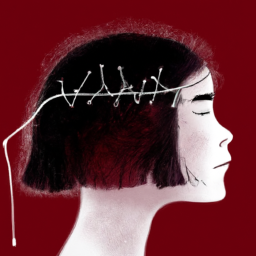Introduction
Mental health problems are an integral part of the human experience, affecting people of all ages, races, and backgrounds. While conversations about mental health have gained traction in recent years, stigma and misconceptions still surround these conditions. In this comprehensive article, we will delve deeper into various mental health problems, exploring their causes, symptoms, impact, and the steps one can take to seek help and support.
The Prevalence of Mental Health Problems
Mental health issues are far more common than often perceived. According to the World Health Organization (WHO), approximately 1 in 4 people worldwide will experience a mental health problem at some point in their lives. These issues can range from mild to severe, and early intervention is crucial to prevent further complications.
Understanding the Causes
Mental health problems are multi-faceted and arise from a combination of genetic, biological, environmental, and psychological factors. For instance, a family history of mental illness may increase an individual’s vulnerability to developing similar conditions. Additionally, traumatic life experiences, chronic stress, substance abuse, and social isolation can contribute to the onset of mental health problems.

Common Types of Mental Health Problems
Depression: Often referred to as the “common cold” of mental health, depression affects millions globally. Persistent feelings of sadness, loss of interest in activities, changes in sleep and appetite, and difficulty concentrating are characteristic symptoms. Depression can vary in severity and may lead to suicidal thoughts if left untreated.
Anxiety Disorders: Anxiety disorders encompass a range of conditions, such as generalized anxiety disorder, social anxiety disorder, and specific phobias. Individuals experience excessive and irrational fear, often disrupting daily life and causing physical symptoms like rapid heartbeat and sweating.
Schizophrenia: Schizophrenia is a severe and chronic mental disorder characterized by hallucinations, delusions, disorganized thinking, and impaired social functioning. It requires long-term treatment and support to manage symptoms effectively.
Bipolar Disorder: Formerly known as manic depression, bipolar disorder involves alternating periods of extreme mood swings, including manic episodes of high energy and depressive episodes of low mood.
Post-Traumatic Stress Disorder (PTSD): PTSD can develop after experiencing or witnessing a traumatic event. Individuals may suffer from flashbacks, nightmares, and emotional numbness, making it challenging to lead a stable life.
Obsessive-Compulsive Disorder (OCD): OCD leads to unwanted and intrusive thoughts (obsessions) followed by ritualistic behaviors (compulsions) aimed at reducing anxiety.
Impact on Physical and Emotional Health
Mental health problems not only affect emotional well-being but also have significant consequences on physical health. Chronic stress and anxiety can lead to high blood pressure, weakened immune systems, and an increased risk of heart disease. Moreover, these conditions can strain relationships, impair work or academic performance, and contribute to social isolation.
Breaking the Stigma
The stigma surrounding mental health problems can be a major barrier to seeking help. Many individuals fear judgment and discrimination, causing them to suffer in silence. By promoting open dialogue and understanding, we can break the stigma and create a more compassionate society that supports those dealing with mental health challenges.
Seeking Help and Support
The journey to mental well-being starts with acknowledging the problem and seeking help. Here are some steps individuals can take:
Reach Out: Talk to someone you trust about your feelings and experiences. Whether it’s a friend, family member, or mental health professional, sharing your struggles can be a significant first step.
Professional Support: Consult a mental health professional, such as a psychologist, psychiatrist, or counselor. These experts can provide tailored treatment plans and support to manage mental health problems effectively.
Medication: In some cases, medication may be prescribed to alleviate symptoms and help stabilize mood. It’s essential to follow medical advice and attend regular check-ups.
Therapies: Psychotherapy, including cognitive-behavioral therapy (CBT), dialectical behavior therapy (DBT), and interpersonal therapy, can help individuals learn coping strategies and improve emotional regulation.
Support Groups: Joining support groups can provide a sense of community and understanding, as individuals with similar experiences come together to share their journeys.
Self-Care: Incorporate self-care practices into your daily routine, such as exercise, meditation, mindfulness, and spending time with loved ones.
Conclusion
Mental health problems are complex and prevalent issues that can impact anyone, regardless of age, background, or social status. Recognizing the signs and seeking help is essential for effective management and recovery. Together, we can create a society that understands, supports, and advocates for mental well-being, breaking down the barriers that hinder individuals from seeking the help they deserve. By fostering empathy and compassion, we can ensure that no one feels alone in their mental health journey and that the path to recovery is accessible to all.
Thank You for Visiting our website mhnrc.org. If you liked the article, then share it with others.
Follow us on Facebook
Buy Alpine at Discounted Price – Secret for Healthy Weight Loss
White Hot Weight Loss Offer Is Crushing It Going STRONG in 2023! Buy Now


